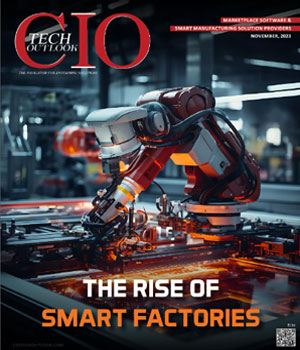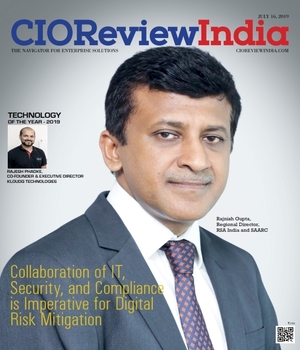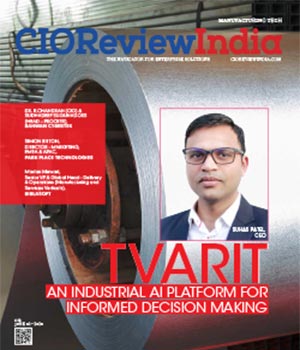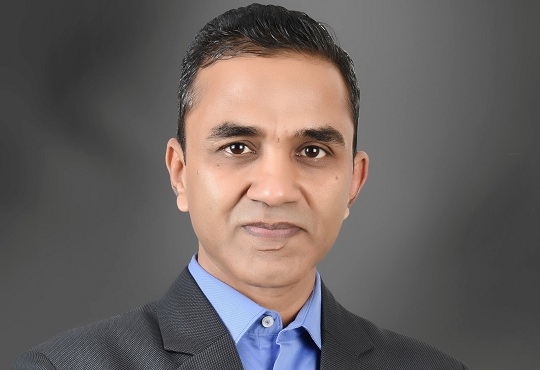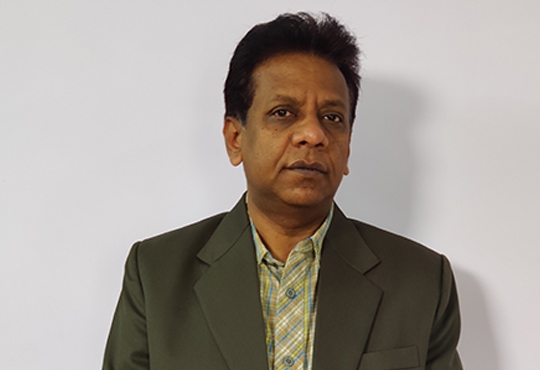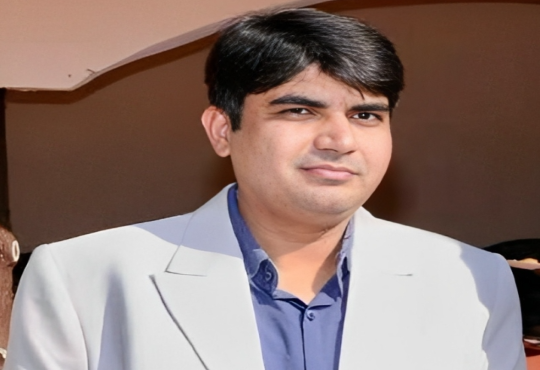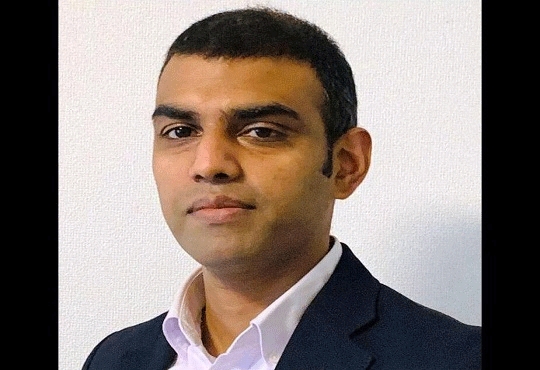
Novel Manufacturing Technologies to Accelerate The Journey Towards Industry 5.0
Abhrasnata Das | Sunday, 18 September 2022, 12:38 IST
 Poorav Sheth, Chief Digital Officer at Godrej & Boyce in an interaction with CIOTechOutlook, shares his insights on the paradigm shift in smart manufacturing. He also throws light on the issues pertaining to Data management, mitigating the downtime and more.
Poorav Sheth, Chief Digital Officer at Godrej & Boyce in an interaction with CIOTechOutlook, shares his insights on the paradigm shift in smart manufacturing. He also throws light on the issues pertaining to Data management, mitigating the downtime and more.
Smart Manufacturing Market is expected to reach USD 236.12 billion by 2026. How is the smart manufacturing market growing in India? What are the key factors driving the growth?
Even still, India's manufacturing sector has long been limited to industry 3.0, a growing trend towards industry 4.0 can now be noted. The big players have not only adopted but have even accelerated their smart manufacturing journey. On a much positive note, small and medium-sized businesses are also accelerating their transition to industry 4.0.
Over the time, multiple developments have collectively influenced the shift of Indian industries towards a smart manufacturing ecosystem. To begin with, critical products, such as sensors, IoT devices, are witnessing a massive reduction in price with rising availability. Also, the OEM’s of smart products are rapidly upgrading the products to provide better connectivity across the manufacturing network.
Lack of youth’s involvance in manufacturing activities has given rise to smart manufacturing in the nation. With a dearth of skilled workers in the unit, shifting towards technology driven manufacturing practice is now the most feasible direction for the manufacturers. Lastly, COVID played a vital role in this and has given a much needed thrust to India’s Industry 4.0 journey.
Data management is a major challenge area for manufacturers. Technology platforms are now constantly generating data about production lines, supply chains, employee performance, etc. Today, lack of data isn't a problem, but it's an inability to use data to generate insights. How can this problem be solved?
Management of data scattered across the prevalent siloed solutions has been a major challenge for the organizations. Moreover, for big enterprises with multiple business involvements, data management can be a herculean task.
At Godrej and Boyce we have devised a smart manufacturing platform that helped us mitigate the underlined challenge. With smart manufacturing platforms on the line, the critical data generated from different sources are channeled to one point. Hence, instead of each business building its own siloed solutions, a smart manufacturing platform can centralize the data for all; thereby enabling plug and play models.
Centralized data lake, however, calls for an intelligent and effective data governance. Having 14 business business involvements, Godrej and Boyce has stakeholders that govern the data generated from each business. Proper data maintenance and governance assures the presence of right data at place that paves way for real time monitoring, predictive maintenance and more.
Whilst the vast scope and ample advantages of smart factory initiation and implementation, the process of transformation can be challenging. How should the manufacturing entities approach to institute smart manufacturing?
The strategy to institute smart manufacturing would vary depending on the size and IT maturity of the organization. For big enterprises like Godrej and Boyce, opting for a platform based solution is critical to ensure flexibility and scalability. Furthermore, it helps the leading players ensure complete ownership of the IP.
Today, there are multiple startups that are bringing in smart manufacturing solutions with a pinpoint focus on a particular industry. These solutions operate on a plug and play basis; thereby evolving to be an optimum option for MSMEs or companies with low IT maturity.
In the coming days, these off the shelf solutions will take center stage helping the companies in the transformation towards smart manufacturing. Largar cloud providers like AWS, Microsoft are partners with the startup to this segment of the market.
Technical failures in machinery can completely disrupt delivery schedules, thereby damaging reputation. These can also inflate the maintenance budgets. How should manufacturing industries implement technology to mitigate the downtime challenges?
Downtime in any industry has serious ramifications for the business. Starting with the supply chain to inventory and customer experience, all receive a significant impact. That being said, mitigating this challenge needs continual data collection from the existing systems, to devise a condition based monitoring model. Moreover, the existing system data can also help the manufacturers implement advanced analytics like AI and ML to do predictive maintenance.
However, with the coexistence of new and old machines in the manufacturing unit, the process of ensuring proper data collection may vary accordingly. At Godrej and Boyce, we have taken different approaches for data collection from old and new equipment. In the case of the old equipment, our team has retrofitted multiple sensors to the machines that includes — visual sensors, vibration sensors, noise & sound sensors, light sensors, etc. Whereas, for newer equipment, we ensure that the OEM’s are UPC, OPC UA compliant. So basically, when we plug in the equipment it easily starts putting in data into our platform.
This data helps the maintenance team to continually monitor the machine performance and plan condition based monitoring. The existing machine data also helps to point any possible anomalies in the system and figure out the possible reason.
How do you see the Smart Manufacturing market evolving in the near future?
In the last few years the Indian manufacturing industry has rapidly evolved in terms of technology adoption. Infact, the country has evolved into one of the largest investors in new age technologies like — IoT, AI, ML, augmented reality, virtual reality, etc.
However, in the days to come, the industry needs to move beyond the present dependency on IoT and look forward to developing artificial intelligence based models to improve business operations and customer experience. Immersive technologies like AR VR, will also play a critical role enabling critical business operations like — assisting people, or technicians on the field.
Future holds great potential for India, as we are still at a preliminary stage. Over the next few years, these newer technologies are set to take the center stage and accelerate the journey towards Industry 5.0.
CIO Viewpoint
Novel Manufacturing Technologies to Accelerate...
By Abhrasnata Das
Manufacturing IT: A Journey Towards Robust Future
By Manish Chandegara, CIO, Cera Group
Revolutionizing the Electrical Equipment...
By Janifha Evangeline
CXO Insights
AI/ML: Enhancing the Efficiency of Predictive...
By Govind Singh, Group CIO, Dalmia Bharat
Prime Aspects Successful Business Leaders...
By - Santosh Rai, Chief Information Officer, Asahi India Glass
How Industry 4.0 is Transforming the...


